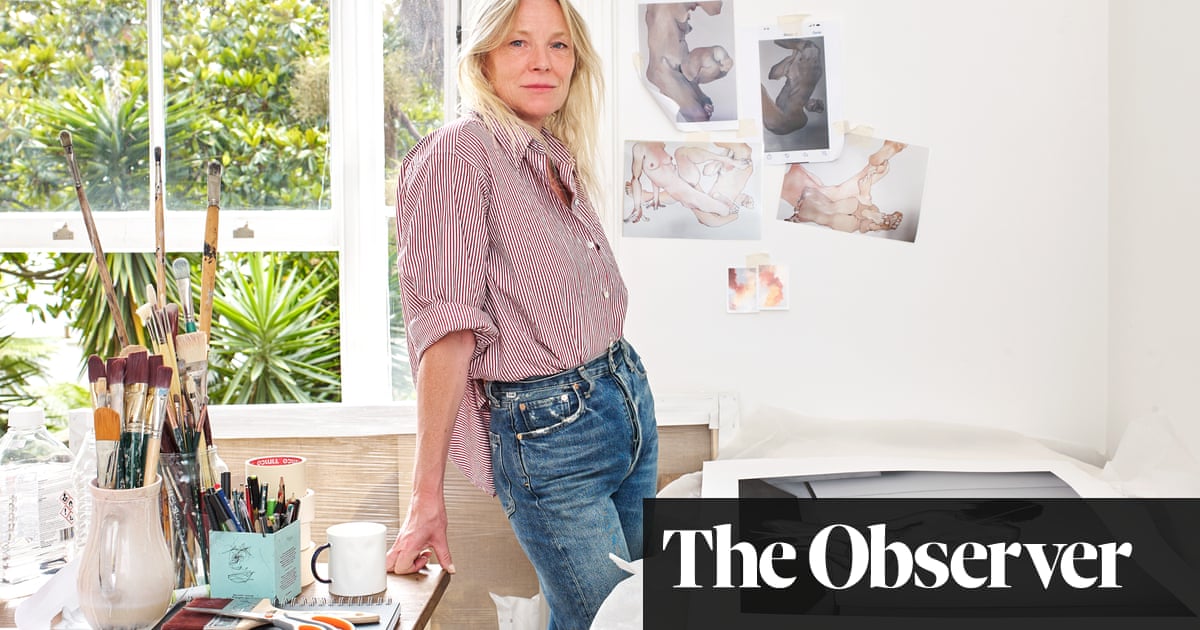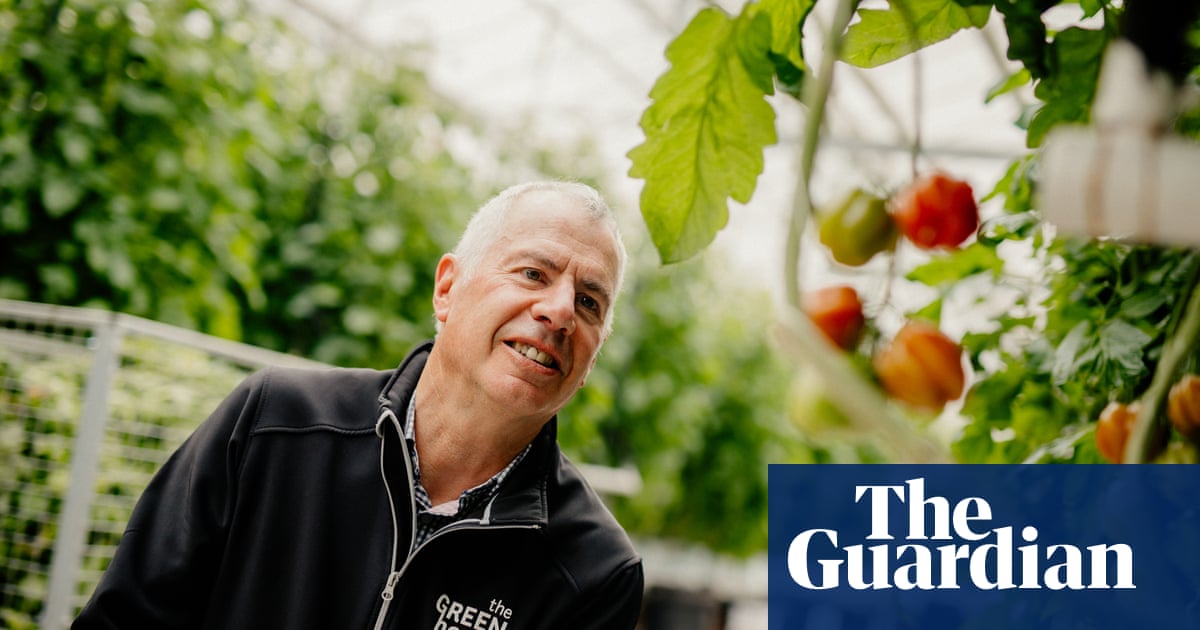
“The mix maybe hasn’t risen enough, or the tin is too big,” says Tom Kerridge. “Is it a wholemeal flour?”
It’s not every day that an affable Michelin-starred celebrity chef drops by, even if it is via the power of Zoom, and it just happens to coincide with my lockdown loaf emerging from the oven. Of course, I share the magic moment. It’s not my proudest attempt at sourdough – today’s is under-risen, possibly overdone, not entirely un-brick-like.
“It looks quite dense, I’d be looking for something a bit more …” Kerridge, so chatty on the telly, suddenly seems lost for words. “It looks quite rustic,” he says, finally, before adding: “And bread is supposed to be rustic.”
Correctly rustic – I’ll take that. But this isn’t about me and my fabulous sourdough; it’s about him, his restaurants, other restaurants and what future they have, if any.
As well as the television and the books, Kerridge, 46, has restaurants in London and Manchester, plus a brace of seriously foody pubs in Marlow, Buckinghamshire. The affluent Thameside town is also where he lives with his wife, sculptor Beth Cullen-Kerridge, and their four-and-a-half-year-old son, where his offices are and where he Zooms from today. He is wearing a grey sweatshirt and looks healthy and quite trim, with no extra lockdown weight.
Kerridge hasn’t always been trim. A bacchanalian lifestyle (including sinking 15 pints a night) took its toll until, approaching 40 and weighing 30 stone, he realised he would be pushing daisies before he reached 50 unless he got a grip on his life. So that’s what he did. Over a couple of years he offloaded about 12 stone via his own recipe for weight loss that involves a low-carb diet, loads of exercise and abstinence. Tom Kerridge’s dopamine diet he called it in his 2017 book.
“I haven’t been able to get to the gym, obviously, and I haven’t got any free weights at home, so I’ve lost a load of strength but I’ve taken up running,” he tells me. “I hate every minute of it. I’m not built for running but I try to do 20, maybe 25k a week. I make myself do it and I feel better when it’s done.”
What about the diet? The deep-fat fryer did come out last night, he admits, to make fish and chips with his son. “I didn’t eat the chips. I did have bits of the fish but it was a very thin batter.’
And the dopamine levels? “Up and down.” He has enjoyed time with the family, cooking, tea at home, family bike rides. “But there is a really dark cloud floating above it. There’s something not quite right,” he says. “It’s like being on a really shit holiday.”
Working in a restaurant is more than a job. “It defines you as a person, like being an artist or an actor or a sportsman,” he says. Take that away and a big part of you has gone. He filled some of the void by setting up a charitable fund, making meals to serve NHS staff in local hospitals. It has been helpful, not just for the frontline health workers who have been able to sit down for five minutes and eat something that didn’t come from a vending machine, but also for the members of his own staff who volunteered. “It allowed them to feel they are still doing something proactive, cooking every day. I know we were out on Thursday nights clapping, but this felt like a physical opportunity to give somebody something back.”
Restaurants and pubs, the whole hospitality industry, probably couldn’t have been hit any harder. “It’s been a huge wake-up call,” he says. “Everyone knows the story that two out of three restaurants don’t make it through the first year after opening. But everyone sees a busy restaurant and assumes it’s making loads of money. Most busy restaurants are just about surviving. If you’re making 10% net profit on turnover you’re seen to be doing good; 10% net profit is such a small margin.”
Kerridge is reasonably happy with the government so far, from a business point of view, if not a public health one. His staff are nearly all on furlough, the grants have helped, but the future is massively uncertain. “There’s going to be some horrific casualties, close friends, maybe us, who knows? We don’t know, until we can open, what the appetite is going to be like for going out.”
He says it’s hard to guess which businesses are most at risk. There’s the restaurant that has to borrow from the government just to reopen, and will then have to make a profit to repay the loan. Or those that had just opened when this happened; or even if you were an incredibly successful restaurateur but had just borrowed to open another restaurant and now can’t fund the borrowing. Size is no guarantee of survival; Kerridge points to the report that Pret a Manger was looking to negotiate rents. “If they’re having to do it, that means the little guys will have to. Each individual business will have its own sense of vulnerability, why and how it can come through this or why it can’t.”
If this all sounds incredibly gloomy, Kerridge himself doesn’t. Yes, there are black clouds, worries, uncertainties, difficult decisions, but he admits that there is a part of him that finds it quite exciting. “It’s a little bit like when you’re a young chef and you’re in service on a Saturday night, there’s a sense of fear.” Fear about whether you’re going to be able to make it through? “It is kind of like that, just a bit more serious with a lot more money involved.”
But restaurants aren’t all about money. “It runs deeper, it’s about love and passion and connection to human beings. You’re in the hospitality industry because you like being with other people. There is something very special about working in restaurants, you’re operating to give people a great time.”
How exactly they are going to operate in order to give people a great time still isn’t clear. Kerridge is hoping to be opening in some form as soon as he can, but the guidelines and protocol aren’t in place – no one knows if it’s going to have to be 1 metre or 2 metres between tables, so he doesn’t know what his capacity is going to be, or even whether diners will be ready to come out. How many staff he’s going to be employing will ultimately depend on these things.
His pubs will have wooden screens between tables, which he says will be in line with them, as he doesn’t want them to feel too different. “Eating out is about enjoying yourself,” he says. “If you make it just about the process, in a sterile and uninviting environment, you may as well just go to a motorway service station.”
But behind the scenes it will be more clinical: temperature checks for staff when they come in, questionnaires about symptoms. “They need to feel safe, they need to feel cared for, they need to feel loved.”
Care, love, social connectivity, these are words that come up a lot when Kerridge talks about his work and the people he works with. He gets very cross when they get referred to in parliament as low-skilled workers. “If they think it’s low-skilled, I wouldn’t mind seeing Boris Johnson or Priti Patel come in working the sauce section of the Hand and Flowers. Come and cook 70 perfect pieces of meat on a Saturday night and then tell me it’s low-skilled.”
If coronavirus has shone a light on the vulnerability of the hospitality sector, it has also highlighted its importance, not least because of the millions of jobs involved in the industry and those connected to it. “Hospitality is built on farming and producers, without us open these guys are losing so much. The knock-on effect is massive.”
He thinks there will be more recognition of the process and people involved – from the farmers to waiters – and that good food costs money. “When people ask why food is so expensive, surely the question should be: ‘Why is food so cheap?’ Why can you buy a packet of chicken breasts for £1.99?”
No chlorinated chicken at the Hand and Flowers then? “Absolutely not, we’re going to be going the other way. I want to be even closer to the producer, the guy looking after the chickens. I want to be even more connected to the people we get things from, to a human being rather than a process.”
There they are again, those human connections. “We want and need to be out, saying hello to each other, having that connection. So the hospitality industry will survive, it’s not going to just shut. There will be some harsh realities and casualties, whether it’s restaurant groups or individual staff, there will be some very big bumps along the way. But we are a fantastic, forward-thinking, eclectic, diverse, rich, exciting industry that will adapt and come through the other side.”
Taking a positive stance then, but he – they, the industry – need to, he says. Don’t forget, this is a man who found positives in the burnt brick that came from my oven.












